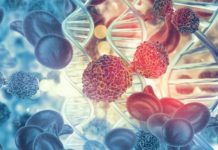The Ohio State University Comprehensive Cancer Center, Richard J. Solove Research Institute, and James Cancer Hospital have discovered a new molecular therapeutic target that could lead to the development of new cancer treatments with fewer side effects.
Previous research has revealed that VEGF-A, a powerful cytokine (signalling protein), and dopamine, a neurotransmitter/neurohormone, play critical roles in a variety of physiologic and pathologic activities. In this new laboratory study, Dr. Sujit Basu and colleagues undertook extensive preclinical examination of VEGF-A as a focus for the creation of new cancer therapeutic techniques. For the first time, the researchers discovered that VEGF-A can increase the expression of dopamine D2 receptors on endothelial cells, which can then be energised to prevent the growth of new blood vessels that drive the growth and spread of diseases like colon cancer, endometriosis, and ovarian hyperstimulation syndromeAngiogenesis is the formation of new blood vessels. The Journal of Cell Science published this research.
It is a very persuasive revelation that opens new passageways for designing efficient new anti-angiogenic therapies in the treatment of cancer and other diseases in which VEGF-A is a recognised driver of disease emergence and expansion, said Basu, The Ohio State University College of Medicine professor and a member of the OSUCCC-James’ Translational Therapeutics Program.
Selective dopamine D2 receptor agonists, unlike currently available anti-VEGF-A anti-angiogenic medicines, are affordable and have well-established and tolerable side effects, according to Basu.
The present anti-VEGF-A anti-angiogenic compounds in clinics have substantial side effects, whereas these treatments do not. Therefore, they feel they deserve more research as a therapy option for cancer and other ailments involving the VEGF-A pathway, Basu explained. Clinical studies for these medications are expected to begin soon, according to researchers.






















